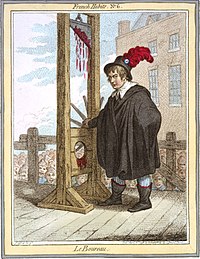George Tierney
George Tierney | |
|---|---|
 | |
| Treasurer of the Navy | |
| In office 1803–1804 | |
| Monarch | George III |
| Prime Minister | Henry Addington |
| Preceded by | Charles Bragge |
| Succeeded by | George Canning |
| President of the Board of Control | |
| In office 1806–1807 | |
| Monarch | George III |
| Prime Minister | The Lord Grenville |
| Preceded by | Thomas Grenville |
| Succeeded by | Hon. Robert Dundas |
| Master of the Mint | |
| In office 1827–1828 | |
| Monarch | George IV |
| Prime Minister | George Canning The Viscount Goderich |
| Preceded by | Hon. William Wellesley-Pole |
| Succeeded by | John Charles Herries |
| Personal details | |
| Born | 20 March 1761 Gibraltar |
| Died | 25 January 1830 (aged 68) Savile Row, London |
| Nationality | British |
| Political party | Whig |
| Alma mater | Peterhouse, Cambridge |
George Tierney PC (20 March 1761 – 25 January 1830) was an Anglo-Irish Whig politician.
Background and education
Born in Gibraltar, Tierney was the son of Thomas Tierney, a wealthy Irish merchant of London, who was living in Gibraltar as prize agent. He was sent to Eton and Peterhouse, Cambridge, where he took the degree of Law in 1784.[1] He was called to the bar from Lincoln's Inn in the same year,[1] but abandoned law and plunged into politics.[2] On 10 July 1789 he married Anna Maria Miller of Stapleton in Gloucestershire; she died in 1844.[3]
Political career

Tierney contested Colchester in 1788, when both candidates received the same number of votes, but Tierney was declared elected. He was, however, defeated in 1790. He sat for Southwark from 1796 to 1806, and then represented in turn Athlone (1806–1807), Bandon (1807–1812), Appleby (1812–1818), and Knaresborough (1818–1830). [2]
When Charles James Fox seceded from the House of Commons, Tierney became a prominent opponent of William Pitt's policy. In May 1798, Pitt accused him of want of patriotism. A duel ensued at Putney Heath on Sunday, 27 May 1798; but neither combatant was injured. [2]
In 1803, Tierney, partly because peace had been ratified with France, and partly because Pitt was out of office, joined the ministry of Henry Addington as Treasurer of the Navy, and was created a Privy Councillor; but this alienated many of his supporters among the middle classes, and offended most of the influential Whigs. On the death of Fox, he joined (1806) the Grenville ministry as President of the Board of Control, with a seat in the cabinet, and thus brought himself once more into line with the Whigs. [2]
About a year after the death of George Ponsonby in 1817, Tierney reluctantly became the recognised leader of the opposition in the House of Commons. At first he was successful, with Whig gains being made at the 1818 general election. On 18 May 1819, Tierney moved a motion in the House of Commons for a committee on the state of the nation. This motion was defeated by 357 to 178, which was a division involving the largest number of MPs until the debates over the Reform bill in the early 1830s. Foord comments that "this defeat put an effective end to Tierney's leadership... Tierney did not disclaim the leadership till 23 Jan. 1821 ..., but he had ceased to exercise its functions since the great defeat".
In George Canning's ministry, he was Master of the Mint, and when Lord Goderich succeeded to the lead Tierney was admitted to the cabinet; but he was already suffering from ill-health and died suddenly at Savile Row, London.[4]
References
- ^ a b "Tierney, George (TNY778G)". A Cambridge Alumni Database. University of Cambridge.
- ^ a b c d Chisholm 1911.
- ^ "Appendix to Chronicle - Deaths - March". The Annual Register, or a View of the History and Politics of the Year 1844. 86: 225. 1845.
- ^ Hamilton 1898.
- Attribution
- This article incorporates text from a publication now in the public domain: Chisholm, Hugh, ed. (1911). "Tierney, George". Encyclopædia Britannica (11th ed.). Cambridge University Press.
- Hamilton, John Andrew (1898). . In Lee, Sidney (ed.). Dictionary of National Biography. Vol. 56. London: Smith, Elder & Co. p. 385-386.
Sources
- Parliamentary Election Results in Ireland 1801–1922, edited by B.M. Walker (Royal Irish Academy 1978).
- His Majesty's Opposition 1714–1830, by Archibald S. Foord (Oxford University Press 1964)
External links
- 1761 births
- 1830 deaths
- Alumni of Peterhouse, Cambridge
- Duellists
- Members of the Parliament of Great Britain for English constituencies
- Members of the Privy Council of the United Kingdom
- Members of the Parliament of the United Kingdom for English constituencies
- Members of the Parliament of the United Kingdom for County Cork constituencies (1801–1922)
- Members of the Parliament of the United Kingdom for Athlone
- Masters of the Mint
- People educated at Eton College
- Whig (British political party) MPs
- Gibraltarian people
- UK MPs 1801–1802
- UK MPs 1802–1806
- UK MPs 1806–1807
- UK MPs 1807–1812
- UK MPs 1812–1818
- UK MPs 1818–1820
- UK MPs 1820–1826
- UK MPs 1826–1830
- British MPs 1784–1790
- British MPs 1796–1800
